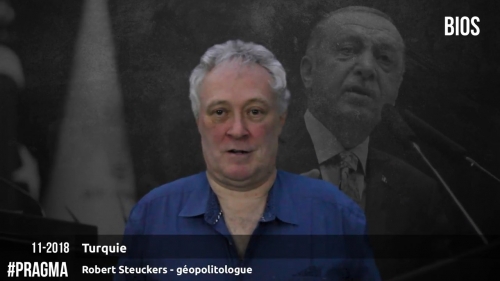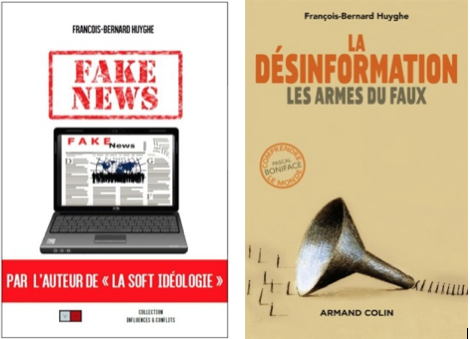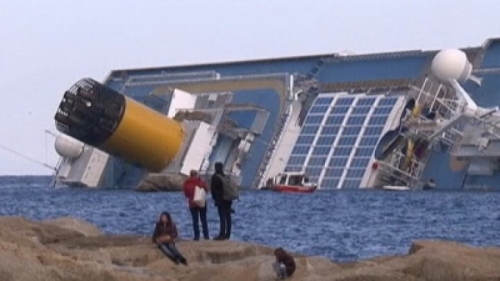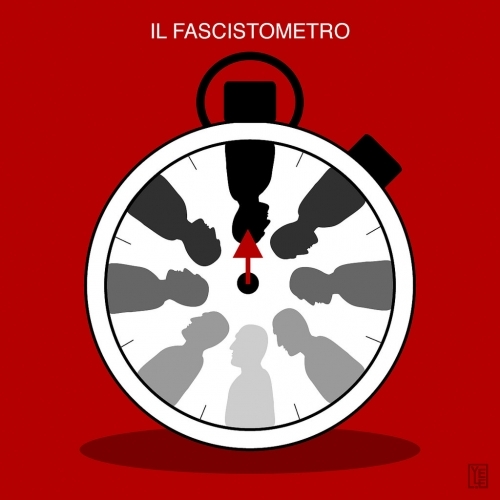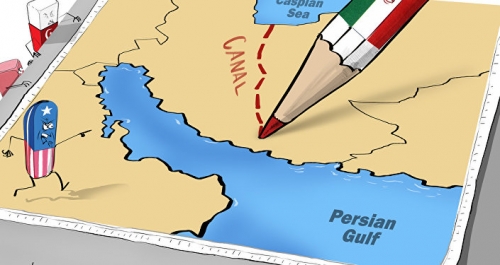
Presseschau
November 2018
AUßENPOLITISCHES
Bargeldabschaffung: So weit ist es schon gekommen - Interview Dr. Norbert Häring
https://www.youtube.com/watch?v=S3R6Dx8jT9A&t=3s
Vier von fünf Deutschen glauben an die EU
https://jungefreiheit.de/politik/ausland/2018/vier-von-fu...
Ungarns Regierung erhöht Druck
Soros-Stiftung zieht von Budapest nach Berlin
https://jungefreiheit.de/politik/deutschland/2018/soros-s...
(Italien-EU-Krise)
Fragwürdige Stellungnahme im Italien-Konflikt
Da liegt Alice Weidel leider falsch
von Wolfgang Hübner
http://www.pi-news.net/2018/10/da-liegt-alice-weidel-leid...
Frankreich
Stinkefinger-Foto mit Macron löst Ärger aus
https://www.welt.de/politik/ausland/article181722320/Emmanuel-Macron-Aerger-um-Stinkefinger-Foto-in-Saint-Martin.html
https://twitter.com/MLP_officiel/status/1046427743905353729/photo/1
Saint-Martin
Oben-Ohne-Foto mit Macron: Krimineller Schwarzer muß in Haft
https://jungefreiheit.de/politik/ausland/2018/oben-ohne-f...
Vortrag bei der Gates-Stiftung
Macron: Nur ungebildete Frauen kriegen viele Kinder
https://jungefreiheit.de/politik/ausland/2018/macron-nur-...
Emanuel Macron
Le Zeitgeist c‘est moi
https://jungefreiheit.de/debatte/kommentar/2018/le-zeitge...
Jeremy Hunt
Nach Sowjetunion-Vergleich: EU-Politiker fordern Entschuldigung von britischem Außenminister
https://jungefreiheit.de/politik/ausland/2018/nach-sowjetunion-vergleich-eu-politiker-fordern-entschuldigung-von-britischem-aussenminister/
Österreich
Strache enthüllt Denkmal für Trümmerfrauen
https://jungefreiheit.de/politik/ausland/2018/strache-enthuellt-denkmal-fuer-truemmerfrauen/
Griechenland fordert weiter Reparationen von Deutschland - Gregor Gysi macht Vorschlag für Zwangskredit
https://web.de/magazine/politik/griechenland-reparationen...
Wahlen in einem zerrissenen Land
Eliten in Bosnien wollen das Chaos erhalten
https://www.n-tv.de/politik/Eliten-in-Bosnien-wollen-das-...
Vorläufiges Endergebnis nach Parlamentswahl in Lettland
https://www.zeit.de/news/2018-10/07/vorlaeufiges-endergeb...
Vorsitzender der belgischen Islam-Partei: „Islamischer Staat ist mit dem belgischen Gesetz konform“
https://www.epochtimes.de/politik/europa/vorsitzender-der...#
Norwegen entschuldigt sich bei „Deutschenflittchen“
https://www.welt.de/geschichte/zweiter-weltkrieg/article1...
Mittelamerikaner marschieren Richtung USA
Trump warnt vor Migranten: „Das ist ein Angriff“
https://jungefreiheit.de/politik/ausland/2018/trump-warnt...
(Diese Studie zeigt offenbar das Forschungsniveau in Kalifornien und Arizona)
Studie
Wegen Trump: Studenten leiden an Posttraumatischem Belastungssyndrom
https://jungefreiheit.de/politik/ausland/2018/wegen-trump...
Verwaltungsräte
Kalifornien beschließt Frauenquote und Bußgelder
https://jungefreiheit.de/politik/ausland/2018/kalifornien...
Abstimmung im Senat
Brett Kavanaugh als Richter am Supreme Court vereidigt
https://www.welt.de/politik/ausland/article181789522/Abst...
(Richterwahl in den USA)
Was uns das angeht
Die Vereinigten Staaten haben als „Elitenation“ (offizieller Terminus Technicus der Medienwissenschaften!) einen besonderen Nachrichtenwert.
https://sezession.de/59481/was-uns-das-angeht
Transgender-Politik
Trump gegen die Apostel der Vielfalt
von Boris T. Kaiser
https://jungefreiheit.de/debatte/kommentar/2018/trump-geg...
Attentate: Die obszöne Schuld-Verlagerung auf Trump
https://www.achgut.com/artikel/attentate_obszoene_schuldv...
Richtungsweisende Wahlen : Wie weit nach rechts rutscht Brasilien?
http://www.faz.net/aktuell/politik/ausland/wahlen-wie-wei...
Präsidentschaftswahl in Brasilien
Rechtspopulist Bolsonaro gewinnt erste Runde deutlich
Es ist eine der wichtigsten Wahlen in Brasilien seit Jahrzehnten: In der ersten Runde hat der rechte Kandidat Jair Bolsonaro gewonnen. Im Kampf um das Präsidentenamt muss er gegen den Linken Fernando Haddad in die Stichwahl.
http://www.spiegel.de/politik/ausland/brasilien-jair-bols...
Wahlamt bestätigt
Rechtspopulist Bolsonaro wird nächster Präsident Brasiliens
Jair Bolsonaro hat die Stichwahl um das Präsidentenamt in Brasilien gewonnen. In einer ersten Reaktion kündigte der ultrarechte PSL-Kandidat an: "Ich werde das Schicksal des Landes verändern."
http://www.spiegel.de/politik/ausland/brasilien-jair-bols...
Fall Khashoggi
Merkel gegen weitere Rüstungsexporte nach Saudi-Arabien
https://jungefreiheit.de/politik/deutschland/2018/merkel-...
Graffiti an altem Gebäude in Thailand – Touristen droht Haft
https://orf.at//stories/3070261/

INNENPOLITISCHES / GESELLSCHAFT / VERGANGENHEITSPOLITIK
Wachsendes Wohlstandsgefälle
Deutschland driftet auseinander
Digitalisierung, Rente, Landflucht und eine alternde Bevölkerung - das sind die Herausforderungen, denen sich Deutschland bis zum Jahr 2045 stellen muss. Während der
Süden und die Städte weiter aufblühen, droht der Osten abgehängt zu werden.
https://www.n-tv.de/politik/Deutschland-driftet-auseinander-article20648998.html
Über 67. Lebensjahr hinaus
Rentenexperte Rürup für noch späteres Renteneintrittsalter
https://jungefreiheit.de/wirtschaft/2018/rentenexperte-ru...
Tag der Deutschen Einheit
Ein gespaltenes Land
https://jungefreiheit.de/debatte/kommentar/2018/ein-gespaltenes-land/
Debatte in der CDU
„Mit Konservatismus wird man nicht weit kommen“
Aus Sicht des Politologen Jens Hacke hat Konservatismus als ideologischer, übergreifender Terminus ausgedient. Die Themen, die damit aktuell in Verbindung gebracht würden – etwa Heimat oder Familie – fielen gar nicht in die Zuständigkeit der Politik. Die aktuelle Debatte innerhalb der CDU bezeichnete Hacke als „typische Reanimationsversuche“.
https://www.deutschlandfunk.de/debatte-in-der-cdu-mit-konservatismus-wird-man-nicht-weit.694.de.html?dram:article_id=415057
Parteitag der Saar-CDU
Merkel warnt vor Nationalismus: „Wehret den Anfängen“
https://jungefreiheit.de/politik/deutschland/2018/merkel-...
Die „Austriakisierung“ Deutschlands und der VS
von Martin Sellner
https://sezession.de/59482/die-austriakisierung-deutschla...
Bosbach möchte nicht mehr nach Merkel gefragt werden
https://www.welt.de/regionales/nrw/article181714752/Bosba...
Proteste gegen Frauenmarsch
Demonstrationsblockade: Grünen-Abgeordnete soll Immunität verlieren
https://jungefreiheit.de/politik/deutschland/2018/demonst...
Hamburger Bürgerschaftswahl
Grüner Wahlhelfer soll Dutzende Unterlagen gefälscht haben
https://jungefreiheit.de/allgemein/2018/gruener-wahlhelfe...
Neue Parteigruppierung
Arbeitsgruppe „Juden in der AfD“ gründet sich in Wiesbaden
https://jungefreiheit.de/politik/deutschland/2018/juden-i...
AfD in Bayern: Erfolg und Ernüchterung
http://www.pi-news.net/2018/10/afd-in-bayern-erfolg-und-e...
Landtagswahl
Bayern bebt
von Dieter Stein
https://jungefreiheit.de/debatte/streiflicht/2018/bayern-...
Bedford-Strohm: Bayernwahl war Zeichen gegen Hetze
https://jungefreiheit.de/politik/deutschland/2018/bedford...
Der Höhenflug der Grünen
„Generation Schulze“ will die Welt retten
von Boris T. Kaiser
https://jungefreiheit.de/debatte/kommentar/2018/generatio...
Der Abstieg der SPD
Das verdiente Ende
von Guido Reil
https://jungefreiheit.de/debatte/kommentar/2018/das-verdi...
Bundestag
Großer Andrang: Petitionsausschuß berät über „Erklärung 2018“
https://jungefreiheit.de/politik/deutschland/2018/grosser...
Aufruf zur Stärkung der EU
Ex-Minister werben für Kampf gegen Nationalismus
https://jungefreiheit.de/politik/deutschland/2018/ex-mini...
Schleswig-Holstein
Grüne fordern Imame im Religionsunterricht
https://jungefreiheit.de/politik/deutschland/2018/gruene-...
"Isch arbeite bei der Polizei"
Berliner Polizei rappt für Toleranz und Multikulti
https://jungefreiheit.de/politik/deutschland/2018/berliner-polizei-rappt-fuer-multikulti/
Rap-Video
Islamisten-Filmemacher drehte Video für Berliner Polizei
https://jungefreiheit.de/politik/deutschland/2018/islamis...
Rap-Video
Berliner Polizei verteidigt Kooperation mit Filmemacher von Islamisten-Video
https://jungefreiheit.de/politik/deutschland/2018/berline...
"Landgerichte lassen zu viel Milde walten"
Amtsrichter rechnet mit Kuschel-Justiz ab
https://jungefreiheit.de/politik/deutschland/2018/amtsric...
Angebliche Terrorgruppe
Verfahren gegen mutmaßlichen Helfer von Franco A. Eingestellt
https://jungefreiheit.de/politik/deutschland/2018/verfahr...
(Gesellschaftliche Zustände)
Bar-Streit auf St. Pauli eskaliert
42 Streifenwagen im Einsatz – fünf Festnahmen
https://www.mopo.de/hamburg/polizei/bar-streit-auf-st--pa...
Entrüstung nach Aussagen zur Kolonialzeit
Abgeordnete werfen Afrika-Beauftragtem der Bundesregierung Rassismus vor
https://jungefreiheit.de/politik/deutschland/2018/abgeord...
Stasi-Gedenkstätte Hohenschönhausen
Drei Stiftungsbeirat-Mitglieder erheben Vorwürfe und treten zurück
https://jungefreiheit.de/politik/deutschland/2018/drei-st...
AfD wirft Bundesregierung Untätigkeit bei Benes-Dekreten vor
https://jungefreiheit.de/politik/deutschland/2018/afd-wir...
Diskussion nach Tauber-Tweet
Grünen-Politiker fordert Umbenennung von Rommel-Kasernen
https://jungefreiheit.de/politik/deutschland/2018/gruenen...
(Indoktrination unbedarfter Schüler)
Schüler beteiligen sich an Wanderausstellung
„Der Weg der Sinti und Roma“: Minderheit als Sündenbock
https://www.op-online.de/region/muehlheim/sinti-roma-schu...

LINKE / KAMPF GEGEN RECHTS / ANTIFASCHISMUS / RECHTE
Neue Hysterie gegen Rechts
Die Reihen schließen sich
von Kurt Zach
https://jungefreiheit.de/debatte/kommentar/2018/die-reihe...
(Gewaltapologie in der jungen Medien-Kaste)
Alexander Gaulands und Michael Seemanns Populismus
von Martin Lichtmesz
https://sezession.de/59476/alexander-gaulands-und-michael...
(Sündenbock gefunden)
Debattenkultur
Barley beklagt Demokratieverachtung in Deutschland
https://jungefreiheit.de/politik/deutschland/2018/barley-...
Sprecherin für Antifaschismus
Niedersachsen will auch Linksextremismus bekämpfen – Kritik von Grünen
https://jungefreiheit.de/politik/deutschland/2018/nieders...
„Keine Plattform für extreme Positionen“
Stiftung Bauhaus untersagt ZDF Konzert mit „Feine Sahne Fischfilet“
https://jungefreiheit.de/kultur/gesellschaft/2018/stiftun...
Nach Bauhaus-Entscheidung
Streit um abgesagtes Konzert von „Feine Sahne Fischfilet“
https://jungefreiheit.de/politik/deutschland/2018/streit-...
Linksradikale Punkband
„Feine Sahne Fischfilet“: Bauhaus bedauert Konzert-Absage
https://jungefreiheit.de/kultur/2018/feine-sahne-fischfil...
Debatte um Konzert-Absage Feine Sahne Fischfilet:
Bauhaus Dessau entschuldigt sich für Absage
https://www.mdr.de/kultur/bauhaus-dessau-entschuldigung-f...
Punkband sucht Konzertort: Stadt und Theater in Dessau für Auftritt von Feine Sahne Fischfilet
http://www.faz.net/aktuell/feuilleton/stadt-und-theater-d...
(Zu Feine Sahne Fischfilet und der Bauhaus-Geschichte)
Stützen der Gesellschaft
Druck auf das Bauhaus Stalin, Ulbricht und dem NKWD gefällt das
https://www.welt.de/kultur/stuetzen-der-gesellschaft/arti...
Die erwachsenen Kinder der sozialen Frage
Die sozialistische Linke als Handlanger der Hochfinanz. Der Vorwurf ist über hundert Jahre alt und trifft noch immer.
https://www.blauenarzisse.de/die-erwachsenen-kinder-der-s...
Angst und Hetze
https://www.blauenarzisse.de/angst-und-hetze/
Christliche Kirchen verurteilen Gründung jüdischer AfD-Gruppe
„Missbrauch der religiösen Botschaft zur Propaganda“
https://www.op-online.de/offenbach/offenbach-christliche-...
Heinrich Bedford-Strohm und Josef Schuster
Schuldig im Sinne ihrer eigenen Anklage
von Karlheinz Weißmann
https://jungefreiheit.de/debatte/kommentar/2018/schuldig-im-sinne-ihrer-eigenen-anklage/
Globalisierung
Warum die Anti-Internationalisten gefährlich sind
Da scheinen sich Donald Trump und Sahra Wagenknecht einig: Das Globale ist ein Problem, wir brauchen nationale Lösungen. Alexander Gauland will sogar lieber deutsch als "Mensch" sein. Das ist kurzsichtig - und entlarvend.
Eine Kolumne von Christian Stöcker
http://www.spiegel.de/wissenschaft/mensch/globalisierung-warum-die-anti-internationalisten-gefaehrlich-sind-a-1230569.html
„unteilbar“-Demonstration
Wagenknecht: Forderung nach offenen Grenzen irreal
https://jungefreiheit.de/politik/deutschland/2018/wagenkn...
(Das interessiert den Verfassungsschutz nicht.)
Berlin
Grüne solidarisieren sich mit Hausbesetzern
https://jungefreiheit.de/politik/deutschland/2018/gruene-...
Verfassungsschutz sammelt Material über AfD
http://www.faz.net/aktuell/verfassungsschutz-sammelt-material-ueber-afd-15816492.html
Drohung gegen die AfD
Verfassungsschutz und Machtmißbrauch (II)
von Thorsten Hinz
https://jungefreiheit.de/debatte/kommentar/2018/verfassungsschutz-und-machtmissbrauch-ii/
„Höchst problematisch“
Staatsrechtler kritisiert Verfassungsschutzäußerungen zur AfD
https://jungefreiheit.de/politik/deutschland/2018/staatsr...
Weißer Ring macht AfD für möglichen Gewaltanstieg verantwortlich
https://jungefreiheit.de/politik/deutschland/2018/weisser...
AfD im (Schul)-Klassenkampf
https://www.achgut.com/artikel/afd_im_schul_klassenkampf
Der Lehrer-Pranger der AfD: Stasi mit Stasi beantwortet?
https://www.tichyseinblick.de/kolumnen/alexander-wallasch...
(Linke Attacke gegen Zahid Khan)
Wahlkampf in Hessen : AfD-Helfer zieht Waffe
http://www.faz.net/aktuell/rhein-main/wahlkampf-in-hessen...
Wegen „rechtspopulistischer“ Äußerungen
SPD-Gruppe will Heinz Buschkowsky aus Partei ausschließen
https://jungefreiheit.de/politik/deutschland/2018/spd-gruppe-will-heinz-buschkowsky-aus-partei-ausschliessen/
Frankfurter Buchmesse gegen die JF
Partymeile statt Sackgasse
von Dieter Stein
https://jungefreiheit.de/debatte/streiflicht/2018/partyme...
(dazu...)
Repressionsformen eines (fast) totalitären Gesinnungsstaates
Die neue BRD-Apartheid gegen Patrioten
http://www.pi-news.net/2018/10/die-neue-brd-apartheid-geg...
(dazu...)
Isolierung der Jungen Freiheit
Der Freiheit eine Sackgasse
https://jungefreiheit.de/kultur/2018/der-freiheit-eine-sa...
(dazu...)
Frankfurter Buchmesse
Sackgasse der Freiheit
https://jungefreiheit.de/kultur/2018/sackgasse-der-freihe...
(Linksradikalisierung der Fußball-Fan-Szene)
Zwei Fans der FC Bayern München-Amateure schlugen alles kurz und klein
Video: Interview zur Zerstörung des AfD-Infostandes in München-Giesing
http://www.pi-news.net/2018/09/video-interview-zur-zerstoerung-des-afd-infostandes-in-muenchen-giesing/
Rechtsextreme aus dem Raum Chemnitz sollen eine Terrorgruppe gegründet haben
https://www.nzz.ch/international/deutschland/rechtsextreme-aus-dem-raum-chemnitz-sollen-eine-terrorgruppe-gegruendet-haben-ld.1424701
Polizei nimmt sechs mutmaßliche Rechtsterroristen fest
https://jungefreiheit.de/politik/deutschland/2018/polizei-nimmt-sechs-mutmassliche-rechtsterroristen-fest/
Von Sachsen aus sollte "rechtsradikaler Umsturz Deutschlands" erfolgen
Revolution mit Luftgewehr und Schlagstöcken?
http://www.pi-news.net/2018/10/revolution-mit-luftgewehr-und-schlagstoecken/
Umsturz mit dem Luftgewehr? Was steckt hinter "Revolution Chemnitz"
https://www.youtube.com/watch?v=OZ1SOAyLSso
Mecklenburg-Vorpommern
Reservisten unter Rechtsextremismusverdacht ohne Beweise ausgeschlossen
https://jungefreiheit.de/politik/deutschland/2018/reservi...
Politische Korrektheit im Profifußball
Werder Bremen will AfD-Anhängern Dauerkarten entziehen
https://jungefreiheit.de/politik/deutschland/2018/werder-...
(Proletengepöbel ist Meinungsfreiheit)
AfD unterliegt Eintracht-Chef : Verfahren gegen Peter Fischer eingestellt
http://www.faz.net/aktuell/rhein-main/verfahren-gegen-ein...
Nach der Hessenwahl
Eintracht-Präsident kündigt weiteres Engagement gegen AfD an
https://jungefreiheit.de/politik/deutschland/2018/eintrac...
Arbeiter-Samariter-Bund
Keine Erste-Hilfe-Kurse für AfD
Unbarmherzige Samariter
https://jungefreiheit.de/politik/deutschland/2018/unbarmh...
Keine Erste-Hilfe-Kurse
Arbeiter-Samariter-Bund verteidigt AfD-Ablehnung
https://jungefreiheit.de/politik/deutschland/2018/arbeite...
Das war’s. Diesmal mit: Mietklauseln gegen rechts … (Und den Hass-Rappern von K.I.Z.)
https://sezession.de/59796/das-wars-diesmal-mit-mietklaus...
(Historikertag in Münster betreibt politische Instrumentalisierung von Geschichte)
Kritik an Resolution
Historiker beklagen „Einheitsfront der Wohlmeinenden“
https://jungefreiheit.de/wissen/geschichte/2018/historike...
Historikertag
Volkspädagogisches Programm
von Thorsten Hinz
https://jungefreiheit.de/debatte/kommentar/2018/volkspaed...
Bremer Linkspartei spielt Weimarer Republik
https://www.achgut.com/artikel/bremer_linkspartei_spielt_...
SPD warnt vor Paralleljustiz
Linksextreme veröffentlichen Fotos von Berliner Polizisten
https://jungefreiheit.de/politik/deutschland/2018/linksex...
Kundgebung gegen Rechts und PAG
CSU wirft SPD und Grünen Schulterschluß mit Linksradikalen vor
https://jungefreiheit.de/politik/deutschland/2018/csu-wir...
Zehntausende demonstrieren in Berlin gegen Rassismus
https://www.gmx.net/magazine/politik/zehntausende-demonst...
#unteilbar
Zehntausende demonstrieren für offene Grenzen und gegen Rechts
https://jungefreiheit.de/politik/deutschland/2018/zehntau...
Wohlfühlen - kostenlos - bei #UNTEILBAR
„Eine Viertelmillion“ beim nächsten großen Gratis-Event
http://www.pi-news.net/2018/10/eine-viertelmillion-beim-n...
„Ich glaube nicht, daß das intolerant ist“
#Unteilbar-Demo: Deutschlandfahnen waren unerwünscht
https://jungefreiheit.de/politik/deutschland/2018/unteilb...
(kritische linke Analyse)
Aufbruch ins Ungefähre
Verfasst von Dagmar Henn am 12. Oktober 2018
Kritik eines Aufrufs
https://daskalteherz.blog/2018/10/12/aufbruch-ins-ungefae...
#Wirsindmehr
Tausende demonstrieren in Frankfurt gegen Rechts
https://www.hessenschau.de/gesellschaft/tausende-demonstr...
(SPD und Grüne mit DKP und Punkern)
Frankfurt
Demonstration
Linke Gruppen rufen zur Großkundgebung gegen Rechts auf
http://www.fnp.de/lokales/frankfurt/Linke-Gruppen-rufen-z...
(Grüne mit MLPD)
Offener Brief
CSU wirft Schulze gemeinsame Sache mit Linksextremisten vor
https://jungefreiheit.de/politik/deutschland/2018/csu-wir...
Dresden: Tausende Menschen demonstrieren gegen Pegida
https://www.zeit.de/video/2018-10/5851553806001/dresden-t...
Wird Freiburg instrumentalisiert? Ja, mit guten Gründen!
https://www.achgut.com/artikel/wird_freiburg_instrumental...
Faktencheck Freiburg: Von „friedlich“ bei linken Gegendemos keine Spur
http://www.pi-news.net/2018/10/faktencheck-freiburg-von-f...
(Gleichgeschaltete Kunstszene)
"Künstler mit Herz": Reaktion auf das AfD-Ergebnis
Ein Video gegen die AfD, gedreht von der Initiative "Künstler mit Herz" und auf Facebook mehr als 2,6 Millionen Mal geklickt: Das war vor der Wahl. Und jetzt? Danach? Den Protestwählern den Wind aus den Segeln nehmen, sagt Liedermacher Roland Hefter.
https://www.br.de/nachrichten/kultur/roland-hefter-bayern...
(Linke Staatskünstler)
Vor der Landtagswahl in Hessen
Künstler rufen zur Wahl von Thorsten Schäfer-Gümbel auf
Mehr als 100 Künstler und Kulturschaffende haben wenige Tage vor der hessischen Landtagswahl ihre Unterstützung für SPD-Spitzenkandidat Thorsten Schäfer-Gümbel bekundet
https://www.monopol-magazin.de/kuenstler-rufen-zur-wahl-v...
Niedersachsen
Osnabrücker Asta verteilt Stoffbeutel mit linksextremer Parole
https://jungefreiheit.de/politik/deutschland/2018/osnabru...
http://www.pi-news.net/2018/11/fuer-deutschland-keinen-fi...
(Prozesse gegen Lügenpresse)
Café Schnellroda und Prozeßverläufe
von Götz Kubitschek
https://sezession.de/59687/cafe-schnellroda-und-prozessve...
Politisch Motivierte Kriminalität
Hitlergrüßender Afghane läßt rechte Straftaten wachsen
https://jungefreiheit.de/politik/deutschland/2018/hitlerg...
Auch rote Farbe an weiterem Denkmal
Unbekannte sprühen Hammer und Sichel an Bremer Dom
https://www.weser-kurier.de/bremen/bremen-stadt_artikel,-...
Weitere beschmiert und zerstört
AfD-Wahlplakate in Heusenstamm angezündet
https://www.op-online.de/region/heusenstamm/heusenstamm-p...
Götz Kubitschek in Frankfurt überfallen
Der umstrittene Verleger Götz Kubitschek ist vor einer Pizzeria beschimpft und angegriffen worden.
https://www.nzz.ch/international/goetz-kubitschek-in-fran...
Frankfurt
Überfall auf Verlegerpaar Kubitschek und Kositza
https://jungefreiheit.de/politik/deutschland/2018/ueberfa...
Resultat von Hetze gegen alles, was „rechts“ ist
Überfall auf Kubitschek und Kositza in Frankfurt hat viele Mittäter
http://www.pi-news.net/2018/10/ueberfall-auf-kubitschek-u...
Climate March Tübingen
Nach Gewalt-Aufforderung: Boris Palmer rüffelt Antifa
https://jungefreiheit.de/politik/deutschland/2018/nach-ge...
Politisch motivierte Gewalt
Linksextreme feiern Farbanschlag auf Steinbachs Wohnhaus
https://jungefreiheit.de/politik/deutschland/2018/linksex...
http://www.pi-news.net/2018/10/farbanschlag-auf-haus-von-...

EINWANDERUNG / MULTIKULTURELLE GESELLSCHAFT
Vorstoß zum Nationalfeiertag
Migrantenverbände fordern „Tag der deutschen Vielfalt“
https://jungefreiheit.de/politik/deutschland/2018/migrant...
Spurwechsel
Schleusenöffnungsgesetz
von Michael Paulwitz
https://jungefreiheit.de/debatte/kommentar/2018/schleusen...
AfD-Bundestagsabgeordnete über einen verhängnisvollen UN-Plan
Der „Globale Pakt für Migration“ ist eine große Gefahr für Deutschland
http://www.pi-news.net/2018/10/der-globale-pakt-fuer-migr...
Österreichs Regierung erwägt Ausstieg aus UN-Migrationspakt
https://jungefreiheit.de/politik/ausland/2018/oesterreich...
UN-Migrationspakt
Auch Österreich macht nicht mit
https://www.tagesschau.de/ausland/migrationspakt-103.html
(UN-Migrationspakt)
Unfairer Journalismus
Wir verwahren uns gegen eine durch nichts gerechtfertigte Unterstellung
https://www.tichyseinblick.de/daili-es-sentials/wir-verwa...
Der Große Austausch als „Verschwörungstheorie“
von Martin Lichtmesz
https://sezession.de/59515/der-grosse-austausch-als-versc...
„Vorurteile und Panikmache“
Migranten-Journalisten kritisieren „Bild“-Berichterstattung
https://jungefreiheit.de/politik/deutschland/2018/migrant...
Meuternde Fluggäste
England: Passagiere verhindern Abschiebung eines Vergewaltigers
https://jungefreiheit.de/politik/ausland/2018/england-pas...
(Luftnummer)
Asylpolitik
Seehofer-Erlaß führt zu drei Zurückweisungen
https://jungefreiheit.de/politik/deutschland/2018/seehofe...
„Spurwechsel“ in der Flüchtlingspolitik
Handwerkspräsident fordert Bleibeperspektive für abgelehnte Asylbewerber
https://jungefreiheit.de/politik/deutschland/2018/handwerkspraesident-fordert-bleibeperspektive-fuer-abgelehnte-asylbewerber/
Vor Abstimmung im Rathaus lautstarkes Skandieren für Seenotrettung
Video: Junge Migrationsfanatiker in Münster fordern mehr „Flüchtlinge“
http://www.pi-news.net/2018/09/video-junge-migrations-fan...
(Selbst zahlen möchten sie nicht)
Nordrhein-Westfalen
Essener Flüchtlingsbürgen sollen zahlen
https://jungefreiheit.de/politik/deutschland/2018/essener...
AfD-Anfrage
Arbeitslose Ausländer verursachen Wohnkosten in Milliardenhöhe
https://jungefreiheit.de/politik/deutschland/2018/arbeits...
„Seenotrettung“
Kardinal Marx spendet 50.000 Euro an „Mission Lifeline“
https://jungefreiheit.de/politik/deutschland/2018/kardina...
Geld für neues Flüchtlingsschiff
Fantastische 4 spenden 30.000 Euro an „Mission Lifeline“
https://jungefreiheit.de/politik/deutschland/2018/fantast...
Diskussion über Erdogan-Besuch
Erhellendes vom AKP-Mann
https://jungefreiheit.de/kultur/medien/2018/erhellendes-v...
Flüchtlinge und Hidschab-Trägerinnen sollen Polizisten werden
https://philosophia-perennis.com/2018/09/23/fluechtlinge-...
Schleswig-Holstein will Migrantenanteil im öffentlichen Dienst erhöhen
https://jungefreiheit.de/politik/deutschland/2018/schlesw...
Darmstadt
Durch Versorgungsschacht Flüchtlinge fliehen beim Toilettengang aus Abschiebegefängnis
https://www.hessenschau.de/panorama/fluechtlinge-fliehen-...
(Ismail Tipi)
Wahlplakate von CDU-Landtagsabgeordnetem beschmiert
„Gezielter Angriff auf meine Person“
https://www.op-online.de/region/dietzenbach/dietzenbach-w...
Sonntagsheld (79) – Schlag ins Gesicht für den Rechtsstaat
Till-Lucas Wessels
„Der Bayer schlägt genauso zu wie der Eritreer“
https://sezession.de/59475/sonntagsheld-79-schlag-ins-ges...
Ulm: Massenschlägerei am Busbahnhof – Zeugen sprechen von bis zu 40 jungen Männern
https://www.epochtimes.de/politik/deutschland/massenschla...
Nordrhein-Westfalen
Gericht verhängt Haftstrafen gegen bulgarische Gruppenvergewaltiger
https://jungefreiheit.de/politik/deutschland/2018/gericht...
Volksfest in Weimar
Ausländische Täter belästigen Frau und verletzen ihren Freund
https://jungefreiheit.de/politik/deutschland/2018/auslaen...
Köln: Geiselnehmer soll sich als IS-Mitglied bekannt haben
Nach der beendeten Geiselnahme am Kölner Bahnhof schließt die Polizei einen terroristischen Hintergrund nicht aus. Der Verdächtige soll Gaskartuschen gehortet haben.
https://www.zeit.de/gesellschaft/zeitgeschehen/2018-10/ko...
Ermittler prüfen terroristischen Hintergrund
Köln: Geiselnehmer ist polizeibekannter Asylbewerber
https://jungefreiheit.de/politik/deutschland/2018/koeln-g...
Spektakulärer Goldmünzen-Raub
Staatsanwaltschaft erhebt Anklage gegen drei Tatverdächtige
http://www.spiegel.de/panorama/justiz/goldmuenzen-diebsta...
Fürstenfeldbruck
10.000 Euro Sachschaden
Großeinsatz mit Hubschrauber nach Auseinandersetzung in Erstaufnahmeeinrichtung
https://www.kreisbote.de/lokales/fuerstenfeldbruck/grosse...
Köthener Todesfall: Anklage gegen Afghanen erhoben
https://jungefreiheit.de/politik/deutschland/2018/koethen...
Frankfurt
Anklage: Ex-Freundin mit Kabel von Haarglätter erdrosselt?
http://www.fnp.de/rhein-main/Anklage-Ex-Freundin-mit-Kabe...
Festnahmen nach Sexualdelikt
Iraner und Afghane vergewaltigen geistig beeinträchtigte Frau
https://jungefreiheit.de/politik/deutschland/2018/iraner-...
Gruppenvergewaltigung in Freiburg: Sieben Syrer sitzen in U-Haft
https://jungefreiheit.de/politik/deutschland/2018/gruppen...
Polizei nimmt zwei Afghanen in Gewahrsam, ein weiterer flüchtet
Zwei Frauen in Cottbuser Innenstadt sexuell belästigt
https://www.lr-online.de/lausitz/cottbus/zwei-frauen-in-c...
Zeugen gesucht
Frau wird von drei Männern überfallen
Burgsteinfurt - Eine junge Frau ist am Mittwochvormittag in Burgsteinfurt von drei bisher unbekannten Tätern beraubt worden.
https://www.wn.de/Muensterland/Kreis-Steinfurt/Steinfurt/...
Brutaler Überfall am Klinikum Nord – Dortmunderin (54) schwer verletzt
https://www.rundblick-unna.de/2018/10/24/brutaler-ueberfa...
Bedroht, angegriffen und geschlagen
Brutale Überfälle auf Frauen in Frankfurt
https://www.op-online.de/region/frankfurt/brutale-ueberfa...
Das sind die Täter, die den Leipziger Straßenbahnfahrer vermöbelt haben
https://www.tag24.de/nachrichten/oeffentlichkeitsfahndung...
Somalier sticht mit Messer in Schweriner Bus zu
https://www.nordkurier.de/mecklenburg-vorpommern/somalier...
Wachmann verletzt
Blutige Wunde nach Flaschenwurf auf Hettstedter Zwiebelmarkt
https://www.mz-web.de/hettstedt/wachmann-verletzt-blutige...
Bielefeld
Fremder fragt in Bielefeld nach dem Weg - und wird von Räubern bewusstlos geprügelt
https://www.nw.de/lokal/bielefeld/heepen/22277621_Fremder...
Gelsenkirchen: Fünf Unbekannte beleidigen Jugendlichen an Haltestelle – dann schlagen sie ihn vor den Augen seiner Freundin zusammen
https://www.derwesten.de/staedte/gelsenkirchen/gelsenkirc...
Backnang
Unbekannter schlägt auf 72-Jährigen ein
https://www.zvw.de/inhalt.backnang-unbekannter-schlaegt-a...
Stephansposching
Video: Großeinsatz in Außenstelle des Ankerzentrums bei Plattling
https://www.pnp.de/mobile/?cid=3115739
In Italien : Zwei Festnahmen nach dem Tod einer Jugendlichen
http://www.faz.net/aktuell/gesellschaft/kriminalitaet/in-...
http://www.pi-news.net/2018/10/italien-unter-schock-16-ja...
Er verging sich an Frauen und Tieren
Freiburger Polizei nimmt Sextäter fest
https://jungefreiheit.de/politik/deutschland/2018/freibur...
Täter in Untersuchungshaft
Bericht: Afghanen vergewaltigen 15jährige in München
https://jungefreiheit.de/politik/deutschland/2018/bericht...
Vorzeigemigrant
Flüchtlingsblogger Aras B. wegen sexueller Belästigung vor Gericht
https://jungefreiheit.de/kultur/medien/2018/fluechtlingsb...

KULTUR / UMWELT / ZEITGEIST / SONSTIGES
Gute Architektur ist Menschenrecht! - Filmdokumentation der Frankfurter Altstadt-Tagung
https://www.youtube.com/watch?v=e5GpTyX_PG0
Eröffnungsfeierlichkeiten
Frankfurts Neue Altstadt ist nichts für „Modernisten“
http://www.pi-news.net/2018/09/frankfurts-neue-altstadt-i...
Immerather Mühle wegen Tagebau abgerissen
https://www1.wdr.de/nachrichten/rheinland/immerather-mueh...
(Kolonialismusvorwürfe nach 100 Jahren)
Humboldt-Forum Berlin
In Deutschland reißt ein neues Museum alte Wunden auf
https://www.nytimes.com/2018/10/12/arts/design/humboldt-f...
Museum der Bildenden Künste
Orbán: Kulturelle Vergangenheit schützen
Inmitten des europäischen Kulturkampfes müssen wir jetzt unsere kulturelle Vergangenheit, Identität und Souveränität schützen, erklärte Ministerpräsident Viktor Orbán am Dienstag bei der feierlichen Eröffnung des modernisierten Museums der Bildenden Künste am Budapester Heldenplatz.
https://www.budapester.hu/2018/10/30/orban-kulturelle-ver...
Kritik an der Bauhaus-Architektur
https://www.sfa.de/files/Buero/Veroeffentlichung/Zeitschr...
Warum schöne Dinge uns glücklich machen - Schönheit erklärt
https://www.youtube.com/watch?v=-O5kNPlUV7w
Barcelonas Wahrzeichen, die Kathedrale Sagrada Familia, kann offiziell fertiggestellt werden. Die Stadt hat der Kirche die Genehmigung erteilt – 130 Jahre nach Baubeginn.
https://www.swr3.de/aktuell/nachrichten/Sagrada-Familia-b...
(Angebliche Diskriminierung von Frauen...)
Staatssekretäre
Was Hänschen nicht bremst, twittert Göring-Eckardt nimmermehr
von Boris T. Kaiser
https://jungefreiheit.de/debatte/kommentar/2018/was-haens...
Antrag von Grünen und Rosa Liste
München verbietet angeblich sexistische Werbung
https://jungefreiheit.de/politik/deutschland/2018/muenche...
(Die nächste Anti-Rechts-/Anti-AfD-Schmonzette)
Neulich in der ARD: „Die Story“
Wenn der WDR eine Serie politischer Dokumentationen für ARD „Die Story“ nennt - was wird dann daraus?
https://sezession.de/59513/neulich-in-der-ard-die-story
Gniffke und Frey bei der AfD
ARD und ZDF zu Gast in Dunkeldeutschland
von Fabian Schmidt-Ahmad
https://jungefreiheit.de/debatte/kommentar/2018/ard-und-z...
(Verein Neue Deutsche Medienmacher)
Ziel ist die Eroberung der „Migrationsvielfalt“ in den Redaktionsstuben
Merkels 5. Kolonne lebt von Staatsknete
http://www.pi-news.net/2018/10/merkels-5-kolonne-lebt-von...
(Abgestumpfte Medien)
Innere Sicherheit
Fahrlässig herbeigeführt
von Michael Paulwitz
https://jungefreiheit.de/debatte/kommentar/2018/fahrlaess...
Insider-Report von Bernhard Riegler
Mein irres Date mit der ORF-Lady: In der Welt der linken Schickeria
https://www.wochenblick.at/mein-irres-date-mit-der-orf-lady-in-der-welt-der-linken-schickeria/
(Negative Klischees zu Burschenschaften im öffentlich-rechtlichen Fernsehen)
Sonntagsheld (80) – Wo sind sie, die vom breiten Stein…
...nicht wankten und nicht wichen?
https://sezession.de/59506/sonntagsheld-80-wo-sind-sie-di...
(Ein linkes Magazin weniger)
Musikzeitschrift "Spex" wird eingestellt
https://www.zeit.de/kultur/musik/2018-10/popkultur-spex-z...
Konservative Revolution
Anschwellender Revolutionsgesang (1/2)
Über die neuen und alten Rechten
https://www.deutschlandfunk.de/konservative-revolution-anschwellender-revolutionsgesang-1-2.1184.de.html?dram:article_id=426551
Konservative Revolution
Anschwellender Revolutionsgesang (2/2)
Über die neuen und alten Rechten
https://www.deutschlandfunk.de/konservative-revolution-anschwellender-revolutionsgesang-2-2.1184.de.html?dram:article_id=426640
Philip Stein / Identitäre Bewegung - Europa Nostra in Dresden
https://www.youtube.com/watch?v=jGQpaWUCGM0
Götz Kubitschek / Identitäre Bewegung - Europa Nostra in Dresden
https://www.youtube.com/watch?v=Taz6lf9mOQc
Martin Sellner / Identitäre Bewegung - Europa Nostra in Dresden
https://www.youtube.com/watch?v=q8Htg24zW6c
Hängt die Weißen!
Martin Lichtmesz
Während Wolfgang Schäuble am 3. Oktober zu "mehr Zusammenhalt in einer offenen Gesellschaft" aufrief, ...beklagten mehrere Einwandererverbände, daß die deutsche Einheit „aus einer rein weißen Sicht“ betrachtet werde.
https://sezession.de/59466/haengt-die-weissen
"Deutschland spricht": "Du bist auch ein guter Kerl"
Zwei Männer, beide 50 Jahre alt, beide in Hannover geboren und geblieben. Der eine vertritt neurechte Ideen, der andere wählt grün. Gibt es noch etwas, das sie verbindet?
https://www.zeit.de/gesellschaft/2018-09/deutschland-spricht-dirk-gieselmann-diskussion-hannover/komplettansicht
Warum muss es Populismus sein?
von Alexander Gauland
http://www.faz.net/aktuell/politik/inland/alexander-gaula...
Wie viel Hitler steckt in Gauland? Ein Gastbeitrag des AfD-Chefs in der «FAZ» löst Empörung aus
https://www.nzz.ch/feuilleton/wieviel-hitler-steckt-in-ga...
Interview mit Ida-Marie Müller
„Die Heuchelei und die Realitätsferne widern mich schon lange an“
https://jungefreiheit.de/politik/deutschland/2018/die-heu...
Rettet den Umweltschutz vor den Linken
https://www.blauenarzisse.de/rettet-den-umweltschutz-vor-...
Der Historikerverband und die Gefährdungen der Demokratie
von Martin Lichtmesz
https://sezession.de/59462/der-historikerverband-und-die-gefaehrdungen-der-demokratie
Europaparlament
Britischer Abgeordneter vergleicht Nazis mit Sozialisten
https://jungefreiheit.de/politik/ausland/2018/britischer-...
(Das immer gleiche "Kunstwerk" auf politisch korrekter Wanderschaft)
„Die Wölfe sind zurück?“
Wegen AfD: Mahnwache gegen rechte Hetze kommt nach Cottbus
https://jungefreiheit.de/kultur/gesellschaft/2018/wegen-a...
(Das nächste Politisch korrekte Kunstprojekt, von der Presse breitgetreten)
Flüchtlingsschicksale erlebbar machen
Aktion Moving People: Asylkreis verteilt Plastikfiguren auf dem Darmstädter Ludwigsplatz, die Erlebnisse erfahrbar machen.
https://www.echo-online.de/lokales/darmstadt/fluchtlingsschicksale-erlebbar-machen_19095122
https://www.movingpeople.nu/
(Dieser Kelch scheint an Kassel vorüber gegangen zu sein.)
Umstrittenes Kunstwerk : documenta-Obelisk muss weichen
http://www.faz.net/aktuell/rhein-main/kassel-laesst-docum...
https://www.hessenschau.de/kultur/documenta-obelisk-in-ka...
(Der nächste Pseudo-Künstler beruft sich für seine menschenverachtenden Beleidigungen auf die Kunstfreiheit)
Türkisches Generalkonsulat übte Druck aus
Wegen Erdogan-Bild: Drohungen gegen Duisburger Kunsthalle
https://jungefreiheit.de/kultur/2018/wegen-erdogan-bild-d...
(Alt 68er-Thesen bei der Verleihung des Friedenspreises des Deutschen Buchhandels)
Friedenspreis des Deutschen Buchhandels
Die Erinnerungskultur liegt Aleida und Jan Assmann am Herzen
Aleida und Jan Assmann erhielten den Friedenspreis des Deutschen Buchhandels - Für "Vogelschiss"-Thesen haben sie nichts übrig
https://www.rnz.de/kultur-tipps/kultur-regional_artikel,-...
«Der Mensch lässt sich nicht beliebig zurichten»
Freiheit endet da, wo der Staat für das Glück der Bürger sorgen will, sagt Jörg Baberowski. Im Gespräch erzählt der Berliner Historiker, wie er vom Linken zum Liberal-Konservativen wurde.
https://www.nzz.ch/feuilleton/der-mensch-laesst-sich-nich...
Britischer Komiker verteidigt freie Rede
Rowan Atkinson: Recht auf Beleidigung gehört zur Meinungsfreiheit
https://jungefreiheit.de/kultur/2018/rowan-atkinson-recht...
Kultfigur
Die Simpsons: Apu muß der Political Correctness weichen
https://jungefreiheit.de/debatte/kommentar/2018/die-simps...
(Der nächste künstlich aufgebauschte „Rechtsextremismus-Skandal“...)
C&A hatte Nazi-Pullover für Kinder im Sortiment
https://www.gmx.net/magazine/panorama/nazi-pullover-kinde...
(Die Wirtschaft will den großen Austausch fördern. Werden solche Diversity-Debatten auch bei der Werbung in afrikanischen Ländern geführt? Zu wenige Weiße?)
Mehr Vielfalt
Outdoor-Hersteller entschuldigt sich für zu viele weiße Models
https://jungefreiheit.de/politik/ausland/2018/outdoor-her...
Auf der Werbeseite der Firma wurde das neue Konzept schon umgesetzt:
https://www.mec.ca/en/
Buchmessen-Ausbeute (2): Höcke, Trio, Lengsfeld
von Götz Kubitschek
https://sezession.de/59555/buchmessen-ausbeute-2-hoecke-t...
Die bürgerliche Mitte und die Gleichheit I
https://sezession.de/59532/die-buergerliche-mitte-und-die...
Die bürgerliche Mitte und die Gleichheit II
https://sezession.de/59534/die-buergerliche-mitte-und-die...
Wie sich Spanien gegen den Liberalismus stemmte
https://www.blauenarzisse.de/wie-sich-spanien-gegen-den-l...
(Bizarr und geschmacklos)
Tova Ringer ist «Miss Holocaust Survivor»
https://www.welt.de/newsticker/dpa_nt/infoline_nt/bouleva...
https://www.focus.de/wissen/mensch/tova-ringer-93-jaehrig...
Amazon hat einen Shop mit völlig neuem Konzept eröffnet — und viele Kunden sind verwirrt
https://www.businessinsider.de/amazon-hat-einen-shop-mit-...
Wissenschaftler: Smartphone-Sucht korreliert mit Spielsucht
https://www.heise.de/newsticker/meldung/Wissenschaftler-S...
Gestörte Gehirn-Entwicklung : Forscher für Smartphone-Nutzung erst ab 18 Jahren
https://rp-online.de/leben/gesundheit/medizin/manfred-spi...
Genetik: Sie werden, was sie sind
Eltern können auf die Persönlichkeit ihrer Kinder kaum Einfluss nehmen. Jahrzehntelange Forschungen zeigen: Die wichtigsten Charaktermerkmale von Menschen sind von der Geburt an festgelegt – sagt der Verhaltensgenetiker Robert Plomin.
https://www.zeit.de/2018/41/genetik-kinder-verhalten-erzi...
https://www.finanznachrichten.de/nachrichten-2018-10/4492...
Weltwoche-Veranstaltung
Sarrazin sieht Europa auf dem Weg zum islamischen Kontinent
https://jungefreiheit.de/kultur/2018/sarrazin-sieht-europ...
Sinead O'Connor ist zum Islam konvertiert – und hat einen neuen Namen
https://www.gmx.net/magazine/unterhaltung/stars/sinead-oc...






 del.icio.us
del.icio.us
 Digg
Digg

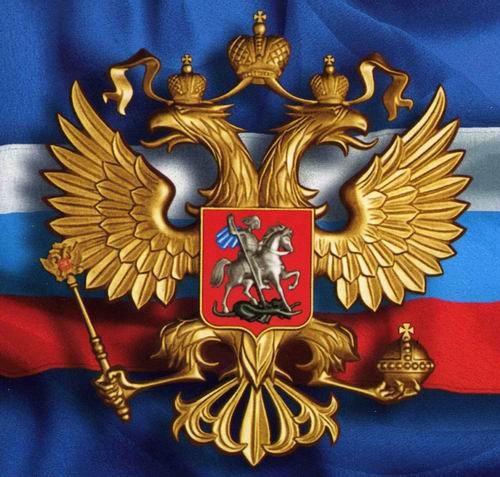 Nous voudrions seulement préciser une chose en ce qui concerne le centralisme revendiqué de cet auteur russe : si, pour notre part, nous nous faisons le défenseur d'un certain fédéralisme, nous nous devons néanmoins d'ajouter que celui-ci ne pourrait être, selon nous, désaccouplé d'une vision centraliste du pouvoir suprême par le fait de la considération spirituelle et traditionnelle qui motive et soutient celle-ci. L'indépendance ne saurait qu'être illusoire au regard de la dynamique de l'autonomie régionale et nationale (tout comme civilisationnelle) et, dans les faits, elle n'est qu'un voile destiné à camoufler une influence néfaste (réelle celle-là et destructrice de la diversité culturelle) sur la culture des peuples et sur leur singularité (l'américanisation sous-jacente au soutien déclaré à la « réappropriation » par les peuples minoritaires de leur culture et de leurs « droits », par exemple). Le centralisme est une nécessité au regard d'une dynamique culturelle qui n'est telle que parce qu'elle peut trouver à s'élever par rapport à un lieux spirituel et politique central, et ultime du point de vue de l'affirmation de sa propre singularité. Il ne peut y avoir de véritable progrès humain sans qu'il ne soit donné à un peuple, comme à une personne, la possibilité perpétuelle de pouvoir s'élever et s'affirmer par rapport aux Autres en regard d'un Ordre qui en donne la réelle possibilité sans encourir le chaos et, au final, l'extinction. La croissance d'une culture comme d'une personnalité est autant à considérer d'un point de vue horizontal que d'un point de vue vertical. Or, il n'est qu'une juste hiérarchie pour octroyer le réel pouvoir de s'élever parmi, et non à l'encontre, des Autres.
Nous voudrions seulement préciser une chose en ce qui concerne le centralisme revendiqué de cet auteur russe : si, pour notre part, nous nous faisons le défenseur d'un certain fédéralisme, nous nous devons néanmoins d'ajouter que celui-ci ne pourrait être, selon nous, désaccouplé d'une vision centraliste du pouvoir suprême par le fait de la considération spirituelle et traditionnelle qui motive et soutient celle-ci. L'indépendance ne saurait qu'être illusoire au regard de la dynamique de l'autonomie régionale et nationale (tout comme civilisationnelle) et, dans les faits, elle n'est qu'un voile destiné à camoufler une influence néfaste (réelle celle-là et destructrice de la diversité culturelle) sur la culture des peuples et sur leur singularité (l'américanisation sous-jacente au soutien déclaré à la « réappropriation » par les peuples minoritaires de leur culture et de leurs « droits », par exemple). Le centralisme est une nécessité au regard d'une dynamique culturelle qui n'est telle que parce qu'elle peut trouver à s'élever par rapport à un lieux spirituel et politique central, et ultime du point de vue de l'affirmation de sa propre singularité. Il ne peut y avoir de véritable progrès humain sans qu'il ne soit donné à un peuple, comme à une personne, la possibilité perpétuelle de pouvoir s'élever et s'affirmer par rapport aux Autres en regard d'un Ordre qui en donne la réelle possibilité sans encourir le chaos et, au final, l'extinction. La croissance d'une culture comme d'une personnalité est autant à considérer d'un point de vue horizontal que d'un point de vue vertical. Or, il n'est qu'une juste hiérarchie pour octroyer le réel pouvoir de s'élever parmi, et non à l'encontre, des Autres.
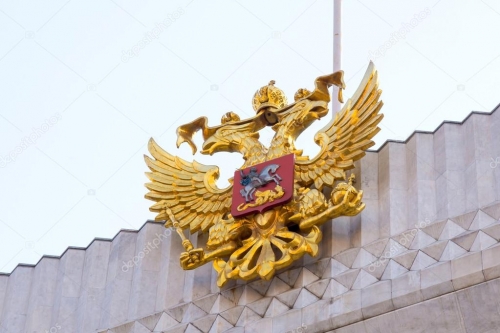
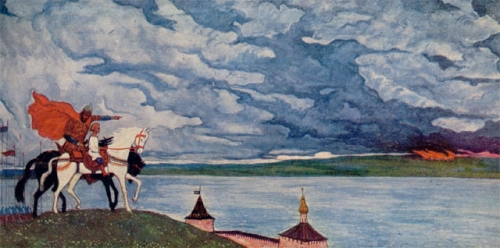
 Question inévitable : après la séparation de ces tribus de la Russie, qui les prendra sous sa responsabilité ? Quelle puissance étrangère se jouera d’elles et en retirera la sève vitale ?
Question inévitable : après la séparation de ces tribus de la Russie, qui les prendra sous sa responsabilité ? Quelle puissance étrangère se jouera d’elles et en retirera la sève vitale ?
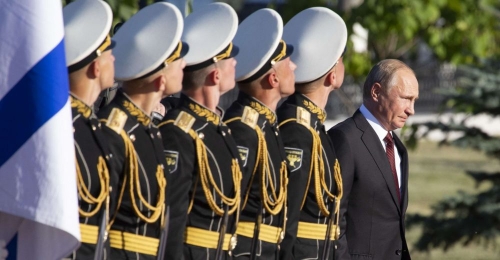
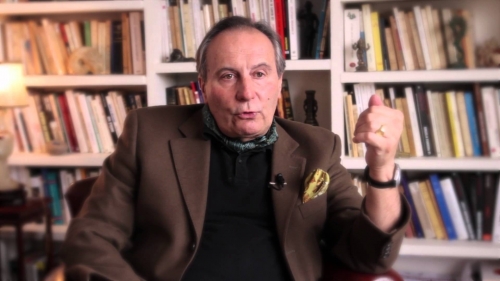

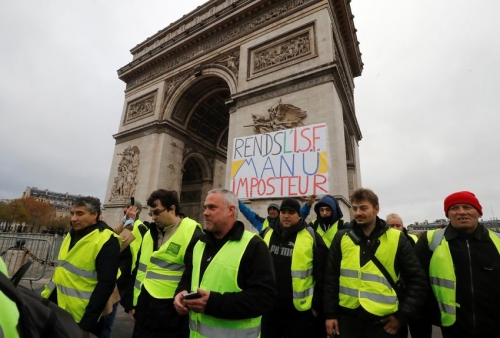

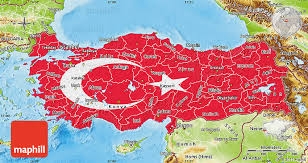
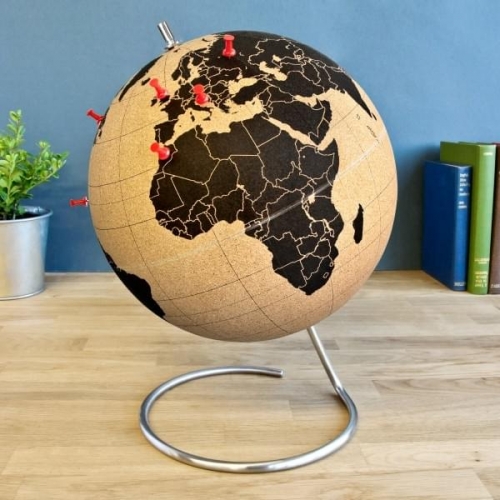

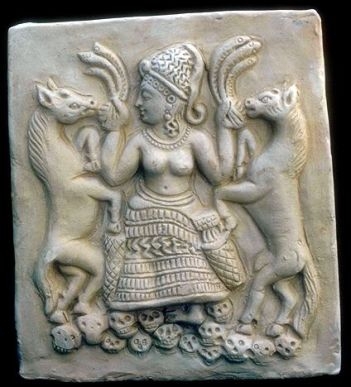 Ce sentiment de commune appartenance a franchi des millénaires. A la fin de la période dite des Juges, chefs de tribu qui résistent à la menace d’envahisseurs et autres Philistins et à la tentation de revenir au culte de Baal, Samuel, le dernier des Juges, institue le premier fédérateur, le roi Saül, dont le gendre, David, installe un état solidement centralisé. Le fils de David, Salomon (-973 à-933), marque avec l’édification du Temple l’apogée du Royaume d’Israël, qu’il répartit en douze districts. Nœud de communication commercial central, le pays fait jonction entre l’Egypte et Babylone et entre la Méditerranée et l’Inde. Mais l’édification de sanctuaires dédiés à des dieux étrangers, dont Astarté, va susciter la révolte de Jéroboam lequel, avec l’appui du Pharaon, provoque la scission entre les royaumes de Juda et d’Israël. Celui-ci est le théâtre des affrontements entre les défenseurs de la tradition (les prophètes) et les partisans du polythéisme, appuyés par des princesses étrangères, dont Jézabel (qui sera assassinée). Car les prophètes préconisent, pour se libérer du polythéisme, le hérem ou sacrifice sanglant, ce que pratiqua avec zèle le roi Jéhu et sa dynastie (-872 à -744) sur les partisans de Baal. Au contraire, le petit royaume de Juda était, à l’exception de la reine Athalie (-842), resté fidèle à la tradition monothéiste. En dépit de l’alliance de Juda avec l’Egypte, Nabuchodonosor envahit le pays et déporta le roi, les nobles et les meilleurs artisans à Babylone, où il les autorisa à vivre en communauté avec leur prophète Ezechiel.
Ce sentiment de commune appartenance a franchi des millénaires. A la fin de la période dite des Juges, chefs de tribu qui résistent à la menace d’envahisseurs et autres Philistins et à la tentation de revenir au culte de Baal, Samuel, le dernier des Juges, institue le premier fédérateur, le roi Saül, dont le gendre, David, installe un état solidement centralisé. Le fils de David, Salomon (-973 à-933), marque avec l’édification du Temple l’apogée du Royaume d’Israël, qu’il répartit en douze districts. Nœud de communication commercial central, le pays fait jonction entre l’Egypte et Babylone et entre la Méditerranée et l’Inde. Mais l’édification de sanctuaires dédiés à des dieux étrangers, dont Astarté, va susciter la révolte de Jéroboam lequel, avec l’appui du Pharaon, provoque la scission entre les royaumes de Juda et d’Israël. Celui-ci est le théâtre des affrontements entre les défenseurs de la tradition (les prophètes) et les partisans du polythéisme, appuyés par des princesses étrangères, dont Jézabel (qui sera assassinée). Car les prophètes préconisent, pour se libérer du polythéisme, le hérem ou sacrifice sanglant, ce que pratiqua avec zèle le roi Jéhu et sa dynastie (-872 à -744) sur les partisans de Baal. Au contraire, le petit royaume de Juda était, à l’exception de la reine Athalie (-842), resté fidèle à la tradition monothéiste. En dépit de l’alliance de Juda avec l’Egypte, Nabuchodonosor envahit le pays et déporta le roi, les nobles et les meilleurs artisans à Babylone, où il les autorisa à vivre en communauté avec leur prophète Ezechiel. 
 A sa mort, les Romains vont jouer la rivalité entre ses fils et c’est la fin du Royaume Hasmonéen, dont la politique de judaïsation forcée n'a pas pu gommer les différences : les villes de la côte étant plus hellénistes que juives. Les pharisiens étaient influents dans les campagnes et les Sadducéens puissants à Jérusalem, les Esséniens se murant dans leur isolement. Mais avec un attachement, partagé par tous, pour une littérature hébraïque florissante. Les révoltes et les répressions se succèdent avec les assassinats et les massacres. La Judée est rattachée au monde romain par Pompée. Membre de la maison du grand-prêtre Hyrcan II, Hérode est un habile manœuvrier qui parvient à se faire apprécier à Rome par les détenteurs successifs du pouvoir, Antoine puis Octave. Il en obtient d’être installé roi de Judée. Il s’empare de Jérusalem grâce aux légions romaines et règne sans scrupule par l’assassinat, y compris des siens.
A sa mort, les Romains vont jouer la rivalité entre ses fils et c’est la fin du Royaume Hasmonéen, dont la politique de judaïsation forcée n'a pas pu gommer les différences : les villes de la côte étant plus hellénistes que juives. Les pharisiens étaient influents dans les campagnes et les Sadducéens puissants à Jérusalem, les Esséniens se murant dans leur isolement. Mais avec un attachement, partagé par tous, pour une littérature hébraïque florissante. Les révoltes et les répressions se succèdent avec les assassinats et les massacres. La Judée est rattachée au monde romain par Pompée. Membre de la maison du grand-prêtre Hyrcan II, Hérode est un habile manœuvrier qui parvient à se faire apprécier à Rome par les détenteurs successifs du pouvoir, Antoine puis Octave. Il en obtient d’être installé roi de Judée. Il s’empare de Jérusalem grâce aux légions romaines et règne sans scrupule par l’assassinat, y compris des siens. 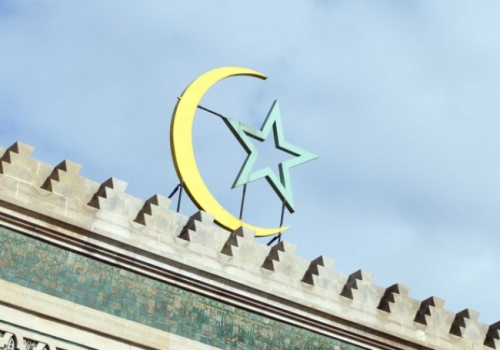
 L’inconvénient de ces socialismes est précisément d’être nationaux et dès lors moins aptes aux alliances que les démocraties populaires, à commandement unique et qui pensent globalité et non pas préférences. La défense de leurs valeurs ethniques et culturelles place les identitaires dans la situation de réactionnaires, face à des adversaires qui ont déjà transformé la France. Autre vache sacrée de la réaction, les racines chrétiennes, que les identitaires français voient catholiques, en opposition au protestantisme et à l’orthodoxie, soit aux deux tiers des Européens blancs ! En oubliant l’héritage païen multimillénaire, qui s’accommode de l’agnosticisme des masses albo-européennes, de leur curiosité scientifique, de leur goût de la nature et de leur amour du vrai. On doit en conclure que l’avenir de la révolution appartient aux racialistes païens plutôt qu’aux nationaux catholiques.
L’inconvénient de ces socialismes est précisément d’être nationaux et dès lors moins aptes aux alliances que les démocraties populaires, à commandement unique et qui pensent globalité et non pas préférences. La défense de leurs valeurs ethniques et culturelles place les identitaires dans la situation de réactionnaires, face à des adversaires qui ont déjà transformé la France. Autre vache sacrée de la réaction, les racines chrétiennes, que les identitaires français voient catholiques, en opposition au protestantisme et à l’orthodoxie, soit aux deux tiers des Européens blancs ! En oubliant l’héritage païen multimillénaire, qui s’accommode de l’agnosticisme des masses albo-européennes, de leur curiosité scientifique, de leur goût de la nature et de leur amour du vrai. On doit en conclure que l’avenir de la révolution appartient aux racialistes païens plutôt qu’aux nationaux catholiques. 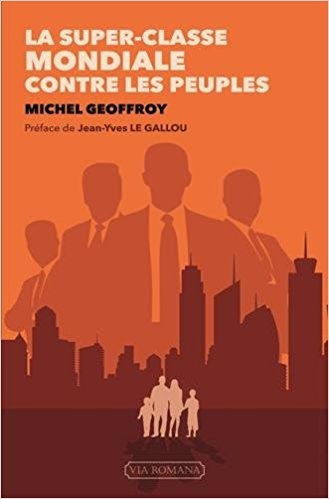 Jean-Patrick Arteault
Jean-Patrick Arteault 

 Avec le recul, malgré sa jeunesse, le Président Le Pen pense qu’il aurait dû se présenter contre le Général De Gaulle. En dépit d’une défaite certaine face au président sortant, « nous aurions eu les cent mille militants. Gagné des années. Changé Mai 68. Réussi l’union des patriotes qui a toujours été mon objectif. Lancé quinze ans plus tôt, et dans une société beaucoup plus saine, l’aventure qui a produit le Front National (p. 347) ». Par conséquent, au moment des événements, « s’il y avait eu un vrai parti de droite avec une organisation militante en ordre de bataille, la face du monde, ou au moins de la France, aurait pu s’en trouver changée (p. 347) ». Prenant parfois des accents dignes d’Ivan Illich d’Une société sans école en des termes bien plus durs, il dénonce « ce rêve fou d’hégémonie scolaire [qui] est le fruit paradoxal de la “ révolution ” de Mai 68, qui vouait la fonction enseignante au nettoyage des WC. La Salope n’est pas crevée, tel un moloch femelle qui se renforce des armes tournées contre elle. L’Alma Mater affermit la Dictature des pions (p. 379) ». Cette scolarisation programmée de l’ensemble du corps social constitue une retombée inattendue du résistancialisme dont « le pire legs […] fut […] l’inversion des valeurs morales (p. 132) ». Il ne faut donc pas s’étonner que « le résistancialisme […] a perpétué la guerre civile pour pérenniser ses prébendes et son pouvoir. Et qui le perpétue toujours (p. 131) ». L’auteur sait de quoi il parle puisqu’il en a été la cible principale quarante ans durant d’une rare diabolisation avec plusieursprocès intentés à la suite d’infâmes lois liberticides.
Avec le recul, malgré sa jeunesse, le Président Le Pen pense qu’il aurait dû se présenter contre le Général De Gaulle. En dépit d’une défaite certaine face au président sortant, « nous aurions eu les cent mille militants. Gagné des années. Changé Mai 68. Réussi l’union des patriotes qui a toujours été mon objectif. Lancé quinze ans plus tôt, et dans une société beaucoup plus saine, l’aventure qui a produit le Front National (p. 347) ». Par conséquent, au moment des événements, « s’il y avait eu un vrai parti de droite avec une organisation militante en ordre de bataille, la face du monde, ou au moins de la France, aurait pu s’en trouver changée (p. 347) ». Prenant parfois des accents dignes d’Ivan Illich d’Une société sans école en des termes bien plus durs, il dénonce « ce rêve fou d’hégémonie scolaire [qui] est le fruit paradoxal de la “ révolution ” de Mai 68, qui vouait la fonction enseignante au nettoyage des WC. La Salope n’est pas crevée, tel un moloch femelle qui se renforce des armes tournées contre elle. L’Alma Mater affermit la Dictature des pions (p. 379) ». Cette scolarisation programmée de l’ensemble du corps social constitue une retombée inattendue du résistancialisme dont « le pire legs […] fut […] l’inversion des valeurs morales (p. 132) ». Il ne faut donc pas s’étonner que « le résistancialisme […] a perpétué la guerre civile pour pérenniser ses prébendes et son pouvoir. Et qui le perpétue toujours (p. 131) ». L’auteur sait de quoi il parle puisqu’il en a été la cible principale quarante ans durant d’une rare diabolisation avec plusieursprocès intentés à la suite d’infâmes lois liberticides.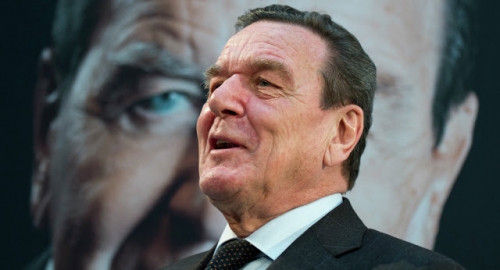

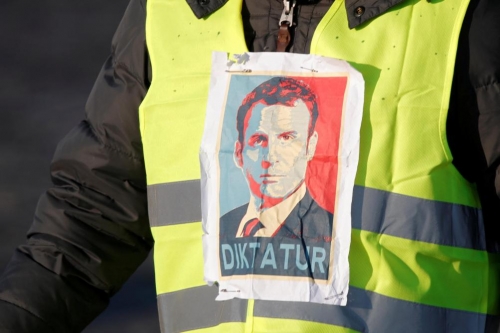
 Après Guénon se défoule sur la classe moyenne apparue en France à la fin du Moyen Age et si visible déjà au temps de Molière (que ne le lisez-vous en ce sens celui-là !) :
Après Guénon se défoule sur la classe moyenne apparue en France à la fin du Moyen Age et si visible déjà au temps de Molière (que ne le lisez-vous en ce sens celui-là !) : La classe moyenne pense sur tout pareil, et c’est en fonction des médias. Elle a été d’abord terrifiante en Angleterre (lisez Fukuyama) puis en France et dans le monde. Balzac :
La classe moyenne pense sur tout pareil, et c’est en fonction des médias. Elle a été d’abord terrifiante en Angleterre (lisez Fukuyama) puis en France et dans le monde. Balzac :